Home Backup Generator: The Ultimate Guide to Choosing One
When the lights go out, it can be a real hassle. Maybe you’re watching your favorite show, or perhaps the fridge is full of food that could spoil. That’s where a good backup generator comes in handy. It keeps your home running smoothly, even when the power grid decides to take a break. This guide will walk you through everything you need to know about picking the right backup generator for your place, so you’re always prepared.
Key Takeaways for Home Backup Generator
- Figure out what appliances you really need to power during an outage to get the right size backup generator.
- There are different kinds of backup generators, like portable ones you can move around or big ones that stay put and turn on by themselves.
- Matching the generator’s power output to your home’s needs is a big deal; don’t just guess.
- Think about what kind of fuel makes the most sense for you, whether it’s natural gas, propane, diesel, or even solar and batteries.
- Don’t forget to consider things like how loud the generator is, what it costs, and what kind of installation it needs.
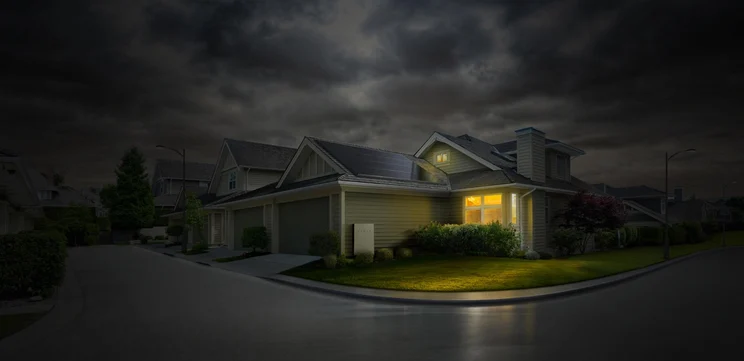
Understanding Your Backup Power Needs
Before you even start looking at generators, it’s really important to figure out what you actually need one for. It’s easy to get caught up in the idea of powering your whole house, but that might be overkill (and seriously expensive!). Let’s break down how to figure out your true backup power needs.
Assessing Essential Home Appliances
Okay, so power’s out. What absolutely needs to keep running? This isn’t about luxury; it’s about safety and comfort. Think about it:
- Medical equipment: If anyone in your home relies on powered medical devices, that’s priority number one. No question.
- Refrigeration: Nobody wants spoiled food. Keeping your fridge and freezer running is pretty important.
- Heating/Cooling: Depending on the time of year, heating or cooling can be essential for safety, especially for vulnerable people.
- Lighting: At least some basic lighting to move around safely.
- Communication: Being able to charge phones or use a backup internet connection to stay informed is key.
Make a list. Seriously, write it down. This list is the foundation for everything else.
Calculating Required Wattage
Now comes the slightly technical part, but don’t worry, it’s not rocket science. Every appliance has a wattage rating – it’s usually on a sticker somewhere on the device. You need to know two numbers:
- Starting Wattage: This is the power needed to start the appliance. It’s often higher than the running wattage, especially for things with motors (like refrigerators or AC units).
- Running Wattage: This is the power needed to keep the appliance running once it’s started.
Add up the running wattage of everything on your essential appliance list. Then, find the appliance with the highest starting wattage and add that to the total. That gives you a rough estimate of the total wattage your generator needs to handle.
For example, let’s say you want to run a fridge (200W running, 700W starting), a few lights (100W total), and a small space heater (1500W running, 1500W starting). Your total running wattage is 200 + 100 + 1500 = 1800W. The highest starting wattage is 1500W (for the heater). So, you’d need a generator that can handle at least 1800W running and a surge of 1500W on top of that.
Consulting with Power Professionals
Look, I get it. All this wattage stuff can be confusing. And honestly, it’s better to be safe than sorry. A home assessment from a qualified electrician or generator specialist can give you a much more accurate picture of your power needs. They can take into account things like voltage requirements, wiring issues, and local electrical codes. Plus, they can help you choose the right size and type of generator for your specific situation. It might cost a little upfront, but it could save you a lot of headaches (and money) down the road.
Don’t underestimate the value of professional advice. A generator is a significant investment, and you want to make sure you’re getting the right one for your needs. A pro can help you avoid costly mistakes and ensure that your generator is installed safely and correctly.
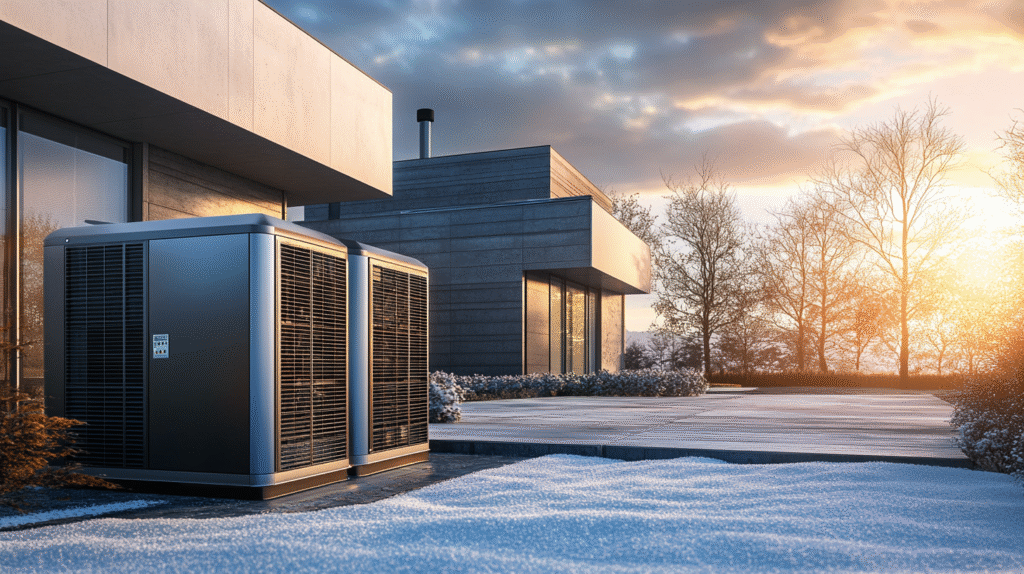
Types of Home Backup Generators
Okay, so you’re thinking about getting a generator. Good move! But before you jump in, it’s important to know what kinds are out there. Basically, we’re talking about how they’re installed and how much power they can give you. Let’s break it down.
Portable Generator Options
Portable generators are your go-to if you want something flexible. You can move them around, take them camping, or use them for projects in the yard. They’re usually cheaper than the permanently installed kind, but you have to set them up yourself when the power goes out. That means dragging it out, hooking it up, and making sure it has fuel. Not ideal in a storm, but they get the job done. Here’s a quick rundown:
- Cheaper upfront cost.
- Can be used for multiple purposes.
- Require manual setup and refueling.
Permanently Installed Standby Generators
These are the big boys. Standby generators are installed outside your house and automatically kick on when the power goes out. No fuss, no muss. They’re connected to your natural gas line or propane, so you don’t have to worry about running out of fuel in the middle of the night. They’re more expensive, but the convenience is worth it for a lot of people.
Whole House Generator Systems
Whole house generators are basically standby generators, but they’re sized to power your entire home. We’re talking lights, appliances, AC, everything. They offer blackout protection, 24/7, and are permanently installed. You can even get models with features that run quietly or do self-diagnostic tests. Here’s what you need to know:
- Provide power to your entire home.
- Operate using natural gas or propane.
- Offer automatic backup power during outages.
Getting a whole-house generator is a big decision. It’s not just about the cost of the unit; you also have to factor in installation, permits, and ongoing maintenance. But if you want peace of mind knowing your home will stay powered no matter what, it’s a solid investment.
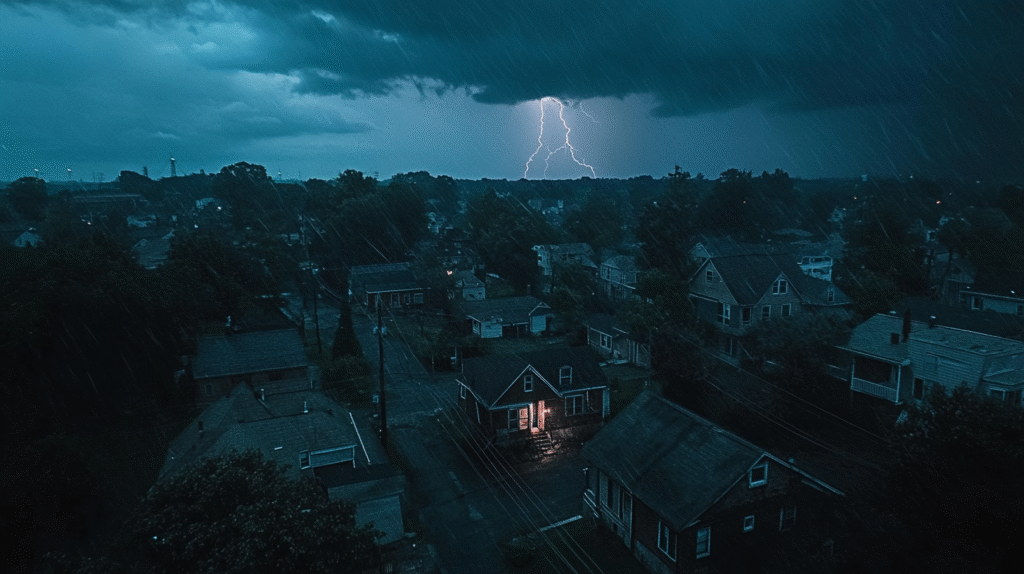
Generator Sizing for Your Home
It’s easy to underestimate how much power your home actually needs during an outage. Getting the right size generator is super important – too small, and you’ll be left in the dark; too big, and you’re wasting money and fuel. Let’s figure out how to get it just right.
Matching Generator Output to Home Size
Okay, so first things first: think about the size of your house. A small apartment will have way different power needs than a sprawling suburban home. The goal is to match the generator’s output to the essential appliances you want to keep running.
- Consider square footage: Larger homes typically need more power.
- Think about the number of rooms: More rooms often mean more lights and appliances.
- Factor in central air conditioning: This is a big power hog.
Considering Specific Appliance Demands
Now, let’s get down to the nitty-gritty. You need to figure out how much power each appliance you want to run actually uses. Most appliances have a sticker on the back or bottom that tells you the wattage. If not, you can usually find it online. It’s also important to understand the difference between starting wattage and running wattage. Some appliances, like refrigerators and air conditioners, need a surge of power to start up, which is higher than their running wattage. You’ll need a generator that can handle those surges. If you are looking for solar power as an alternative, consider the wattage requirements of your appliances.
| Appliance | Average Running Wattage | Average Starting Wattage |
|---|---|---|
| Refrigerator | 150-200 | 600-1200 |
| Window AC Unit | 500-1500 | 1500-4500 |
| Lights (LED) | 10-20 | 10-20 |
| TV | 100-300 | 100-300 |
| Sump Pump | 800-1000 | 1300-2200 |
Expert Sizing Recommendations
If you’re feeling overwhelmed, don’t worry! There are professionals who can help you figure out the right size generator for your home. Electricians and generator installers can assess your power needs and recommend a generator that fits your budget and requirements. They can also help you with backup generator installation and maintenance.
Getting professional advice is always a good idea. They can take into account factors you might not have considered, like future expansion or specific electrical codes in your area. Plus, they can ensure the generator is installed safely and correctly.
Fuel Types for Backup Generators
Choosing the right fuel type is a big deal when picking a backup generator. Each fuel has its own set of pros and cons, impacting everything from cost and convenience to environmental impact and storage needs. Let’s break down the most common options.
Natural Gas and Propane Advantages
Natural gas (NG) and propane are both popular choices for home backup generators—and for good reason. While NG provides a continuous fuel supply as long as gas lines remain intact, propane stands out for its long shelf life when stored correctly.
- Natural Gas: If your home already has a natural gas line, this can be a super convenient option. You don’t have to worry about refueling, and it tends to burn cleaner than other fossil fuels. However, natural disasters can disrupt the supply, and installation can be pricey if you don’t already have a gas line.
- Propane: Propane can be stored for a long time without degrading, making it a reliable choice for emergencies. It also burns cleaner than gasoline or diesel. The downside is you need space for a propane tank, and prices can fluctuate.
I remember when a big storm knocked out power for days. My neighbor with the natural gas generator was up and running the whole time, but another neighbor had to ration their gasoline. It really made me think about the convenience of a continuous fuel supply.
Diesel Generator Considerations
Diesel generators are known for their durability and efficiency. They’re often used in commercial settings, but can also be an option for home backup. Diesel fuel packs a punch in terms of energy density, meaning you get more power per gallon. However, diesel generators tend to be noisier and produce more emissions than natural gas or propane models. Plus, diesel fuel can degrade over time, so you need to store it properly and use fuel stabilizers. Diesel generators perform best when used for big jobs over long periods of time.
Exploring Solar and Battery Solutions
Solar panels paired with battery storage are becoming increasingly popular as a renewable whole-home energy solution for backup power. Solar panels harness sunlight to generate electricity, which can then be stored in batteries for use during power outages. This is an eco-friendly option that reduces reliance on fossil fuels. However, the initial investment can be significant, and the amount of power you can generate depends on sunlight availability. Plus, you’ll need enough battery storage to meet your backup power needs. Solar panels have also emerged as an alternative, harnessing sunlight to generate electricity and offering a renewable, eco-friendly solution for generating and storing backup power.
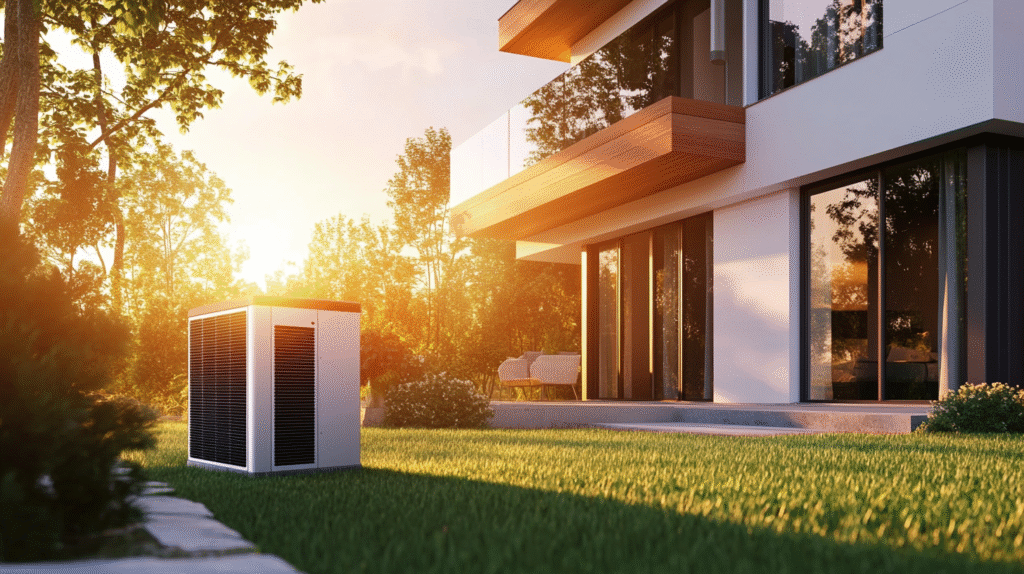
Key Factors in Choosing a Backup Generator
Choosing a backup generator isn’t just about picking the first one you see. It’s about finding the right fit for your home, your needs, and your budget. There are a few key things to keep in mind to make sure you’re making a smart choice.
Evaluating Generator Noise Levels
Let’s be real, generators can be loud. Some are like a dull roar, others sound like a jet engine warming up. Think about where your generator will be located and how much noise you and your neighbors can tolerate. If it’s going to be close to the house, or if you live in a neighborhood with strict noise ordinances, you’ll want to prioritize a quieter model. Nobody wants to be that neighbor. Here’s a quick guide:
- Decibel Levels: Look for the decibel rating (dB) on the generator. Lower dB means quieter operation.
- Location Matters: Consider placing the generator as far from living spaces as possible.
- Sound Dampening: Explore sound dampening enclosures or barriers to reduce noise.
Understanding Generator Pricing
Okay, let’s talk money. Generators aren’t cheap, and the price range can be pretty wide. You’ve got to factor in not just the initial cost of the unit, but also the cost of installation, fuel, and maintenance. It’s easy to get sticker shock, but remember, this is an investment in your peace of mind. To save money on your purchase, find a generator that will supply just your basic necessities.
Also, consider the long-term costs associated with different fuel types. For example, while gasoline might seem cheaper upfront, the cost of storing it safely and its shorter shelf life can add up. Natural gas, on the other hand, might have a higher installation cost but could be cheaper to run in the long run. Don’t forget to check for generator accessories such as weatherproof storage covers.
Assessing Installation Requirements
So, you’ve picked out your generator. Great! Now, how are you going to get it up and running? Installation can range from a simple DIY setup for a portable generator to a complex, professionally installed system for a standby generator. Standby generators often require a concrete pad, connections to your home’s electrical system, and fuel lines.
This usually means hiring a qualified electrician and plumber, which adds to the overall cost. Make sure you understand the installation requirements before you buy, so you’re not hit with any surprises. Also, check how long the model will run on a full tank or full battery to determine its performance capabilities. This helps you choose the best emergency generator for the duration of your typical power outages.
Don’t underestimate the importance of proper installation. A poorly installed generator can be a safety hazard, potentially causing electrical fires or carbon monoxide poisoning. It’s always best to err on the side of caution and hire professionals who know what they’re doing.
Installation and Placement Considerations
Okay, so you’ve picked out your generator. Awesome! But hold on, you can’t just plop it down anywhere and expect it to work safely and efficiently. Where and how you install it matters a LOT. Let’s talk about some key things to keep in mind.
Professional Installation Importance
Look, I get it. We all love a good DIY project. But when it comes to electricity and fuel, it’s really best to leave it to the pros. A qualified electrician and/or a certified generator installer will make sure everything is up to code and working correctly. They’ll also catch potential problems you might miss, saving you headaches (and maybe even your life) down the road. Plus, many generator warranties require professional installation to be valid. Don’t skimp on this step!
Securing Necessary Permits
Before you even think about turning on that generator, check with your local government about permits. Seriously. Most areas have specific rules about generator placement, noise levels, and fuel storage. Ignoring these regulations can lead to fines, or even having to remove your generator entirely. Nobody wants that! A professional installer can usually help you navigate the permit process, but it’s ultimately your responsibility to make sure everything is above board.
Optimal Generator Location
Location, location, location! Just like real estate, where you put your generator is super important. Here are a few things to consider:
- Ventilation: Generators produce carbon monoxide, a deadly gas. Never, ever run a generator indoors or in an enclosed space like a garage. It needs plenty of fresh air.
- Distance from Structures: Keep the generator at least 5 feet away from your house and any other buildings. This helps prevent carbon monoxide from seeping inside and reduces the risk of fire.
- Level Surface: Place the generator on a flat, stable surface to prevent it from tipping over or vibrating excessively. A concrete pad is ideal.
- Weather Protection: While some generators are designed to withstand the elements, it’s a good idea to provide some extra protection from rain and snow. A simple cover or a small shed can do the trick. Just make sure it doesn’t restrict airflow.
Proper installation and placement are not just about convenience; they’re about safety. Taking the time to do it right will protect your family and your property.
Maintaining Your Backup Generator

It’s easy to forget about your generator until the power goes out, but regular maintenance is key to ensuring it works when you need it most. Think of it like your car – you wouldn’t wait until it breaks down to get an oil change, right? The same goes for your generator. A little bit of upkeep can save you a lot of headaches (and a dark house) down the road. Regular maintenance will help ensure your backup generator runs at its best.
Routine Maintenance Schedule
Creating a routine maintenance schedule is the first step. Here’s what I recommend:
- Monthly: Start the generator and let it run for about 30 minutes. This helps keep the engine lubricated and prevents fuel from gumming up the system. Check the oil level and coolant level (if applicable).
- Quarterly: Inspect the air filter and clean or replace it if needed. Check the battery terminals for corrosion and clean them. Examine the fuel lines for any signs of leaks or damage. It’s also a good idea to test the transfer switch to make sure it’s working properly.
- Annually: Have a professional perform a more thorough inspection and servicing. This should include changing the oil and filter, replacing the spark plugs, and checking the overall condition of the generator.
Seasonal Preparedness Checks
Different seasons bring different challenges. Before winter, make sure your generator is protected from the elements and that you have an adequate supply of fuel. Cold weather can make it harder for the generator to start, so consider using a cold weather kit if you live in an area with harsh winters. Before summer, check for any signs of overheating and ensure that the ventilation is clear. Clear away any debris that could block airflow.
Professional Servicing Benefits
While you can handle some maintenance tasks yourself, it’s always a good idea to have a professional service your generator at least once a year. They can catch potential problems that you might miss and ensure that your generator is running safely and efficiently. Plus, many generator installers offer service agreements that include regular maintenance and repairs. This can give you peace of mind knowing that your generator is in good hands.
Ignoring maintenance can lead to costly repairs or even complete generator failure when you need it most. Regular servicing not only extends the lifespan of your generator but also ensures it operates safely and efficiently, providing reliable backup power during outages.
Wrapping Things Up
So, there you have it. Picking out a home backup generator might seem like a big deal, but it doesn’t have to be a headache. Just take your time, think about what your home really needs, and don’t be afraid to ask for help if you get stuck. Getting one of these things set up means you won’t be left in the dark when the power goes out. It’s all about being ready, and trust me, you’ll feel a lot better knowing you’ve got a plan.
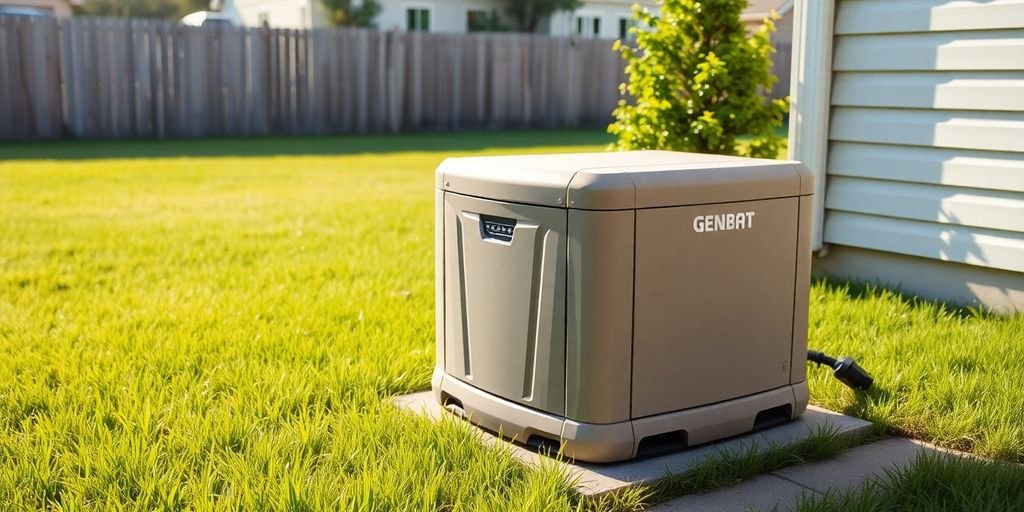
Frequently Asked Questions
How do I choose the right generator for my house?
Picking a generator means thinking about what you need to power, how much electricity those things use, and what kind of fuel you want to use. You also need to think about how noisy it is and how much it costs.
What kinds of fuel do home generators use?
Generators can run on different fuels like natural gas, propane, diesel, or even solar power with batteries. Each one has its good and bad points, like how easy it is to get the fuel or how clean it burns.
What’s the difference between a portable and a permanently installed generator?
A permanently installed generator turns on by itself when the power goes out and can power your whole house. A portable generator needs to be started by hand and can only power a few things at a time.
How big of a generator do I need for my home?
The size of the generator you need depends on what you want to power. If you only need to keep the fridge and a few lights on, you’ll need a smaller one. If you want to run your whole house, you’ll need a much bigger one.
Do I need a professional to install my generator?
It’s really important to have a professional install your generator. They make sure it’s set up safely and correctly, and they can help you get any permits you might need.
How often should I maintain my home generator?
To keep your generator working well, you should follow the maintenance schedule in the owner’s manual. This usually includes checking the oil, changing filters, and having a professional look at it regularly.

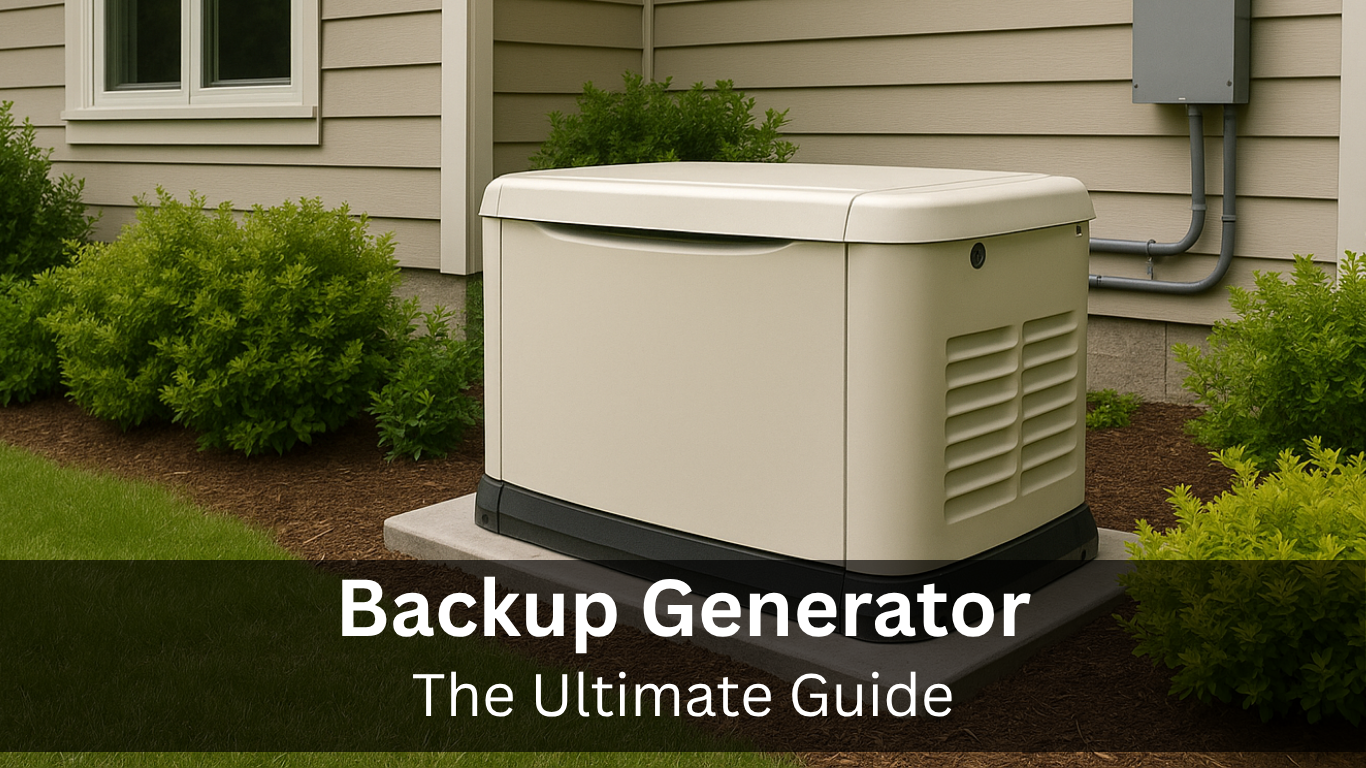



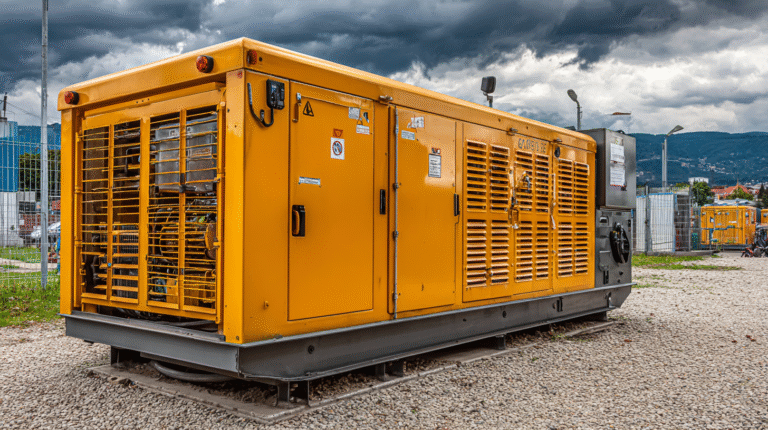

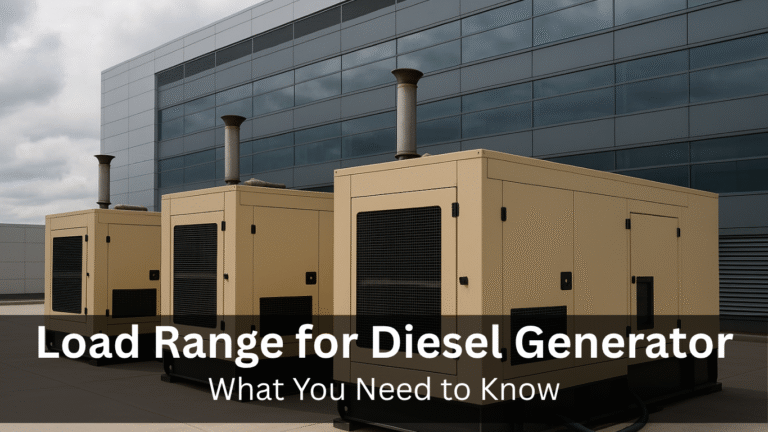

4 Comments